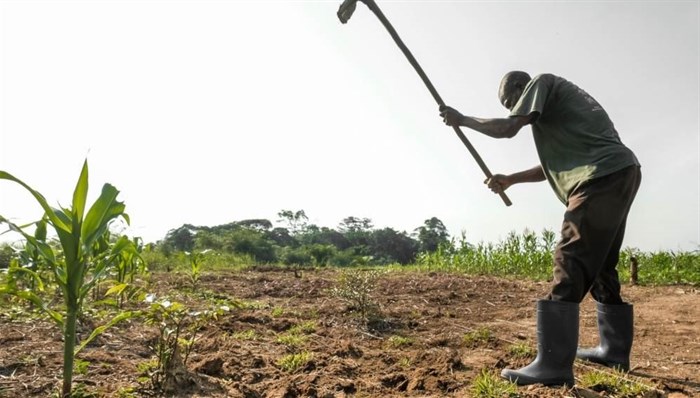Boost smallholder phone access for better crop yields
Data-driven farming involves the use of the right data at the right time to aid better decision-making, so farmers can boost their long-term profits.
Researchers say that mobile technology and big data are dramatically changing the face of agriculture, but the extent to which they are helping smallholders is poorly understood.
Big data is only as useful as the insights it provides, and the decision-making it informs.
"We show that only 24-37% of farms of less than one hectare in size are served by third-generation or fourth-generation mobile services, compared to 74-80% of farms of greater than 200 hectares in size," says Zia Mehrabi, the lead author and a research associate at the Centre for Sustainable Food Systems at the Canada-based University of British Columbia.
“Furthermore, croplands with severe yield gaps, climate-stressed locations and food-insecure populations have poor service coverage. Across many countries in Africa, less than 40% of farming households have internet access, and the cost of data remains prohibitive.”
According to the study, published in Nature Sustainability this month (2 November), 2G network services are suitable for voice and short message services whereas 3G and 4G services have high-speed internet connectivity.
Mehrabi adds that of individuals affected by food insecurity globally, as measured by the prevalence of childhood stunting, 61% are served by 3G and 45% are served by 4G.
"In Africa, the numbers are particularly low: 52 per cent and 22 per cent for 3G and 4G, respectively," says Mehrabi.
Researchers examined household-level mobile ownership globally with particular emphasis on farming and non-farming households in 70 countries: 38 in Africa, 17 in Latin America and the Caribbean and 15 in Asia. Researchers also examined internet access among farming and non-farming households in 48 countries: 20 in Africa, 17 in Latin America and the Caribbean 11 in Asia.
Mehrabi says that the study’s findings are relevant to donors, governments, national agricultural research services, development organisations, academic institutions and industry start-ups working on and investing in digital agriculture.
"In particular, donors, governments and research organisations lack sufficient understanding of the spatial distribution of data services across farms, and how existing services intersect with farms that have the greatest need for support and areas which contain the most food-insecure populations," he adds.
Débísí Àràbà, managing director at the Kenya-based African Green Revolution Forum, says that the study does not necessarily show that the lack of data services is a barrier to agricultural productivity.
"Perhaps including the full suite of mobile services [such as calls, short message services and calls] and their impact on productivity would have provided more context on how widely mobile services are used in the agri-food sector," he explains.
The use of big data to help improve understanding of complex interactions and insights to make better decisions to increase productivity in the agri-food sector, he adds, makes it critical to invest in the use and analysis of big data.
"Big data is only as useful as the insights it provides, and the decision-making it informs," he says.
Policymakers, according to Àràbà, need to focus on increasing productivity in rural areas because the higher the productivity in the agri-food sector, the greater the demand for enhanced mobile services, which includes high-speed data services.
"Increasing productivity will stimulate innovations in addressing the issue of non-consumption of data services," says Àràbà.
This piece was produced by SciDev.Net’s Sub-Saharan Africa English desk.
Source: Scan Display

With 21 years’ experience, Scan Display is a leader in the Southern African exhibition, events and retail display industry, specialising in award-winning exhibition stands, event and exhibition infrastructure, and retail displays. We provide a range of products and services, including custom and off-the-shelf solutions.
For more information, visit www.scandisplay.co.za or contact Justin Hawes on az.oc.yalpsidnacs@nitsuj.
Go to: http://www.scandisplay.co.za/























